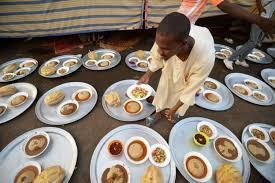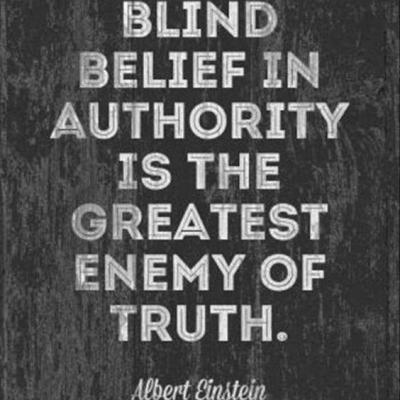
Ramadan Fast Daily Guide by Prof. Sabitu Olagoke
- By solomon2day
- On 04/04/2022
- In The People Talk
 Monday 4th April to Friday 8th April 2022
Monday 4th April to Friday 8th April 2022
Monday, April 4th
Why Ramadan Fast?
Fasting, generally, aims at giving us the opportunity to be in a state of sobriety, whereby one is able to reflect on his or her past activities, to be able to make necessary adjustments in order that adherents of every faith are able to be scripture compliant.
The essence of Ramadan fast, therefore, is to strengthen us into becoming true believers. Ramadan Kareem.
Tuesday, April 5th
Before the Ramadan fats, the 9th month of the Lunar calendar, the two preceding months were Rajab and Sha'ban as the 7th and 8th months of the Lunar calendar respectively.
You clean the body during the month of Rajab, clean the heart during the month of Sha'ban, and clean the spirit during the month of Ramadan.
The Holy Prophet Muhammad teaches us that if you do not clean the body in the month of Rajab and clean the heart in the month of Sha'ban, how can you receive the spirit of inspiration.
Therefore, the month of Rajab is for the forgiveness of sins, and that of Sha'ban for the purification of the heart while Ramadan is for the revival of the spirit.
Be rightly guided. Ramadan Kareem.
Wednesday, April 6th
Ramadan Fast Symbolises the Fear of God
Mankind is always in a state of chaos with unnecessary burdens on their minds, mainly because they do things without due process or the fear of God.
The Holy Quran 2: 183 emphasizes the purpose of fasting. '' O ye believers! Fasting is prescribed to you as it was prescribed to those before you. That he may learn self-restraint.
Remember that the Holy Bible ib Proverbs 25 : 28-31, states, ''Then shall they call upon me, but I will not answer; they shall seek me early, but they shall not find me: For that they hated knowledge, and did not choose the fear of the LORD:
30 They would none of my counsel: they despised all my reproof.
31 Therefore shall they eat of the fruit of their own way, and be filled with their own devices.''
Let the Ramadan fast have a positive and significant impact on you. Ramadan Kareem.
Thursday, April 7th
Observe the Ramadan Fast According to the Rule
Be mindful of what breaks the rule, the law of exemption, and your state of health.
Be guided by the following that breaks your fast :
1) Drinking and eating during the day.
2)Engaging the sexual intercourse during the day.
3) Breaking the fats with alcohol.
4) The use of abusive words and curses.
5)Backbiting.
6)Adultery or fornication.
7) All forms of body contact during the day could be described as immoral.
8)Slander.
The law of exemption spreads around aging factors, gestation period, and breastfeeding period.
The category of believers that would repay the missed ones ranges as follows :
1)Women under menstruation.
2) Sickly people.
3)Travelers who cannot bear the rigors of fasting over a long distance.
Be equally reminded that people with terminal diseases will not only repay but will be totally exempted.
Be guided by the Holy Quran: 184-185,''184[Fasting for] a limited number of days. So whoever among you is ill or on a journey [during them] - then an equal number of days [are to be made up]. And upon those who are able [to fast, but with hardship] - a ransom [as substitute] of feeding a poor person [each day]. And whoever volunteers excess - it is better for him. But to fast is best for you, if you only knew.''
''185 The month of Ramadhan [is that] in which was revealed the Qur'an, a guidance for the people and clear proofs of guidance and criterion. So whoever sights [the new moon of] the month, let him fast it; and whoever is ill or on a journey - then an equal number of other days. Allah intends for you ease and does not intend for you hardship and [wants] for you to complete the period and to glorify Allah for that [to] which He has guided you, and perhaps you will be grateful.''
Ramadan Kareem.
Friday, April 8th
Every program is run through a curriculum for guide. So also every subject for the teacher and the learners not to derail from the behavioral objectives of the course of study.
The Ramadan fast period is a training session of between 29 to 30 days for all mankind in general and Islamic adherents in particular.
Nafl fasts: Nafl means extra, which is not obligatory. But it is voluntary or optional. Nafl is not required by Allah (SWT). Muslims are not sinful for neglecting Nafl, but they are rewarded for doing it.
'Taraweeh' prayers are performed after Isha (night prayer) during Ramadan, a month when faithful Muslims fast from dawn to dusk. The prayers involve reading long portions of the Qur'an, as well as performing many rakahs.
Iftar, also known as futoor (from فطور, fuṭūr, 'breakfast'), is the evening meal with which Muslims end their daily Ramadan fast at sunset. They break their fast at the time of the call to prayer for the evening prayer.
Suhoor, known as the pre-dawn meal in English is a significant element for Muslims during Ramadan. It is the last meal before the sun rises and the day of fasting begins.
Tilawaltul-The Quran says: “You who believe, fasting is prescribed for you, as it was prescribed for those before you, so that you may be mindful of God.” In Medina, the Prophet also found a large monotheistic community that fasted as an act of piety.
Sadaqa Al-Fitr (also known as Zakatul-Fitr) is a charitable donation that is commonly made by Muslims before the holiday (Eid) prayers at the end of Ramadan. This donation is traditionally a small amount of food, which is separate and additional to the annual payment of Zakat, which is one of the pillars of Islam.
Zakat al-Fitr, or the Zakat of Breaking the Fast of Ramadan, is the special obligatory alms paid by all Muslims at the end of the Ramadan fasting month.
It is also called Sadaqat al-Fitr, “the Charity of Breaking the Fast” of Ramadan, and Zakat al-Fitrah, the Alms of Human Nature, or the Human Creation, because it is a mandatory charity due on every Muslim at the end of Ramadan, regardless of age or gender.
Its obligatory payment is termed fitrah, derived from the Arabic term fitr, a word which signifies the “nature” upon which God created the human being, related also to the Arabic word for “fast-breaking” (iftar), eating after a period of abstention from this “natural” and defining human activity.
We Muslims on the day of Eid gather in large open spaces in sunlight for special prayers, these pray are specifically for Eid and are called Salat- ul-Eid. Salat in Arabic stands for what we call communication or communication with God, which is prayer.
Remember to go for TafsirulQuran, which is the in-depth analysis of the Holy Quran(detailed explanation and circumstances surrounding revelations).
Ramadan Kareem.
Ramadan Fast 2022 Prof. Sabitu Olagoke Islam Religion











